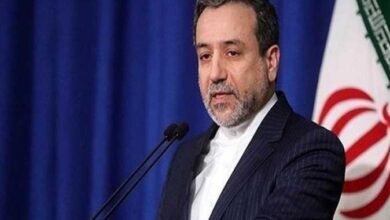
JERUSALEM (AP) — Israel’s Supreme Court on Thursday declined to weigh in on whether Prime Minister Benjamin Netanyahu can return to his post now that he has been indicted, postponing any ruling on his political future until after March elections.
A three-judge panel said the question of whether an indicted member of parliament can be tapped to form a government is important, but that it would be premature to decide the issue before the vote.
The court had been widely expected to delay any ruling. Judging Netanyahu ineligible would have triggered a major political crisis and exacerbated already strained ties between the government and the judiciary.
Netanyahu was indicted in November on charges of bribery, fraud and breach of trust. Israeli Cabinet members are required to resign if indicted, but the rule does not apply to the prime minister. He has continued serving as caretaker prime minister after failing to form a government after unprecedented back-to-back elections last year.
Netanyahu has dismissed the corruption cases against him as an “attempted coup” and warned against any judicial intervention, saying only the voters can choose the country’s leader.
There are no restrictions on Netanyahu running in the March 2 election — the third in less than a year. But the petition, filed by good government groups, contended that having a prime minister under indictment would constitute a conflict of interest. Others have argued that voters have the right to know before the election if Netanyahu is eligible to be prime minister.
The court said that the election campaign period is “a realm of uncertainty” and that it remains to be seen who the president will select to form a government after the March 2 vote. The judges said that in light of the “most sensitive and complicated period the state of Israel is in at this time,” it decided to “act with restraint and moderation” and dismiss the petition for the time being.
The court’s decision came the day after Netanyahu announced that he would seek immunity from prosecution, effectively delaying any trial until after a new government is formed.
Netanyahu hopes to win big in March and assemble a 61-seat majority in favor of immunity. But polls predict another split decision that would prolong the country’s political limbo.
September’s election left Netanyahu’s right-wing Likud party in a virtual tie with the centrist Blue and White, led by former army chief of staff Benny Gantz. Neither was able to assemble a majority with its natural allies, and efforts to form a unity government collapsed in large part because of Netanyahu’s legal woes.
Netanyahu, who was re-elected leader of the ruling Likud party last week, has long accused judicial and law enforcement officials of trying to drive him from office. His allies have issued stern warnings against what they call an “activist” court overstepping its authority and a few dozen pro-Netanyahu protesters convened outside the court in Jerusalem.
Netanyahu has been in power for more than a decade and is Israel’s longest-serving leader. He is also Israel’s first sitting prime minister to be charged with a crime. His predecessor, Ehud Olmert, was forced to resign a decade ago ahead of a corruption indictment that later sent him to prison for 16 months.
Reporting by Joseph Krauss
Image: People look at a poster of Israel Prime Minister and governing Likud party leader Benjamin Netanyahu at a voting center in the northern Israeli city of Hadera, on Thursday, Dec. 26, 2019 (AP Photo/Ariel Schalit)




